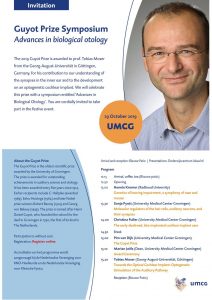Very happy to host two prominent names in cochlear implant research at our next auditory seminar:
Perceiving & producing lexical tones/emotional prosody with cochlear implants: Emerging ideas and unproven hypotheses
Dr. Monita Chatterjee
Boys Town National Research Hospital, Omaha, United States
Unilateral deprivation in children is not a “minimal” hearing loss: Evidence from measures of brain plasticity
Dr. Karen Gordon
The Hospital for Sick Children, Toronto, Canada
Date: Tuesday 30 May 2023
Time: 14:00-16:00
Location: De Brug 2.060, UMCG
Link: https://meet.google.com/wpb-mynr-wcu
For information and to sign up for the e-mail list please contact drs. Joëlle Jagersma, j.d.jagersma@umcg.nl
